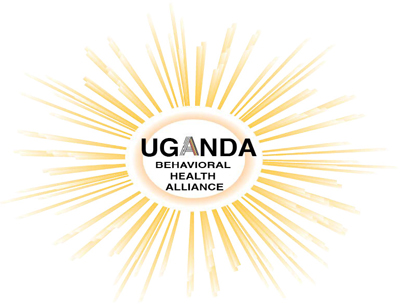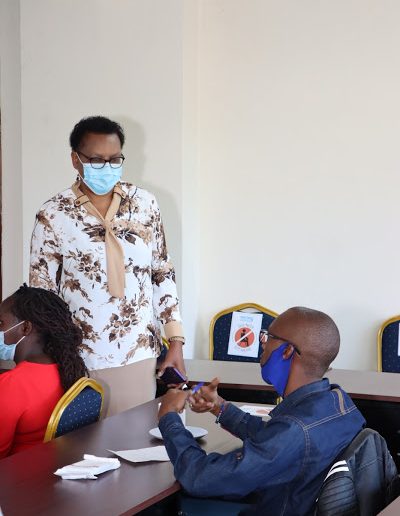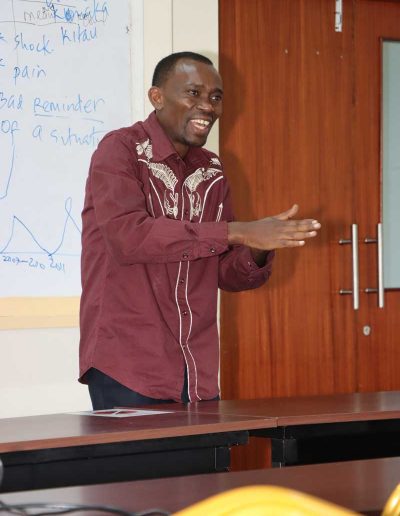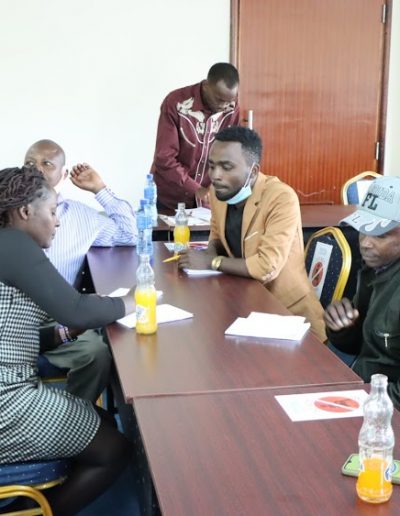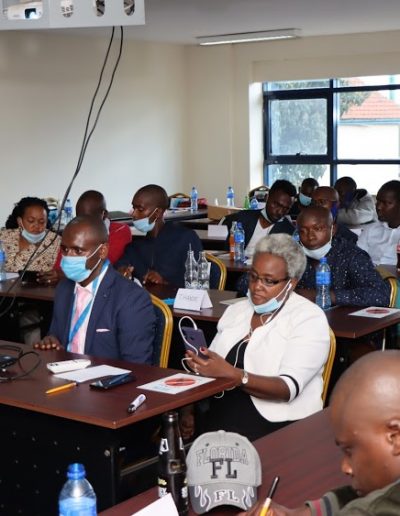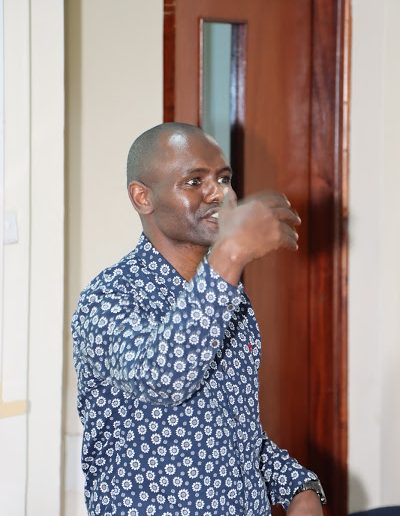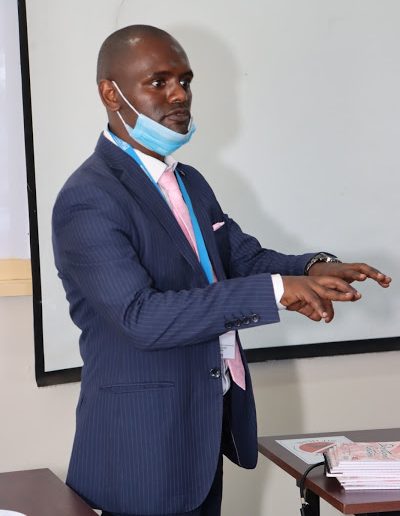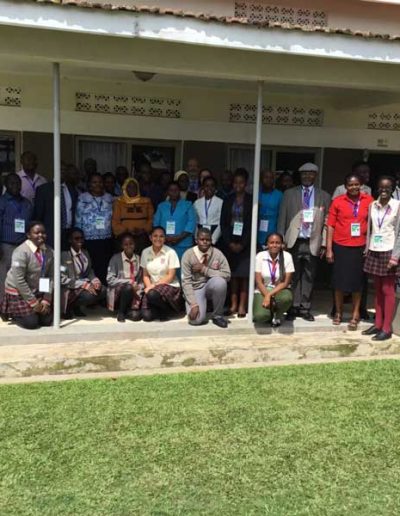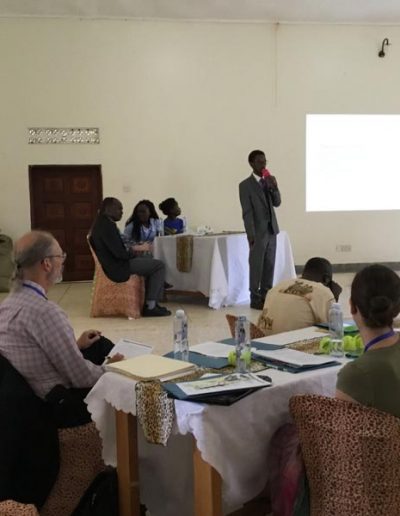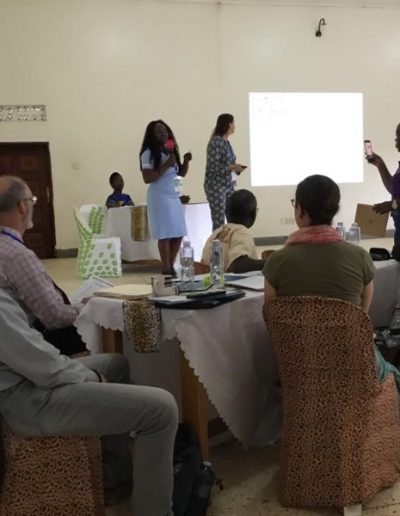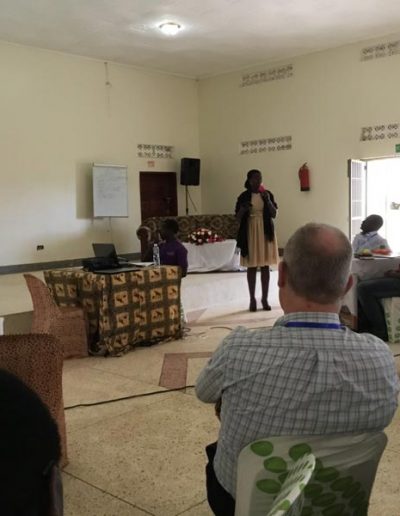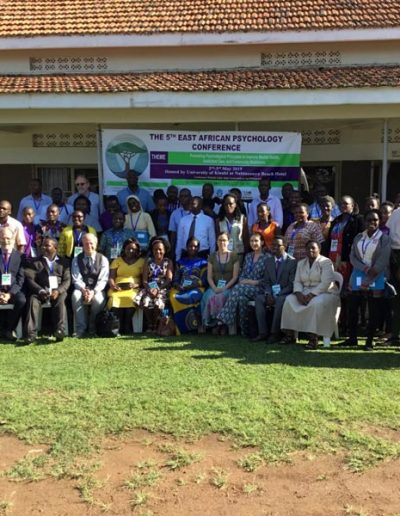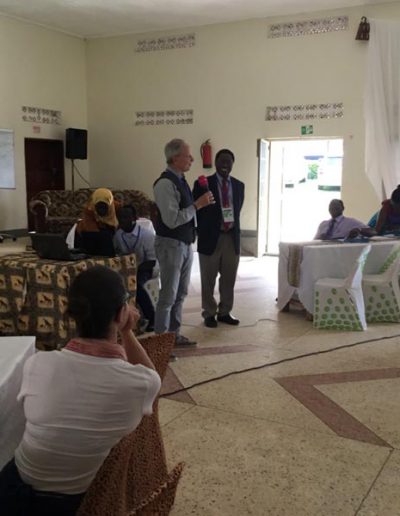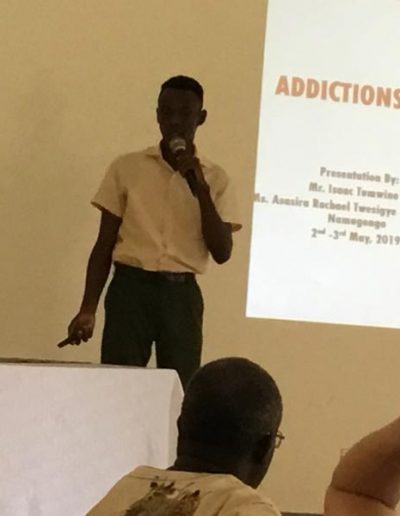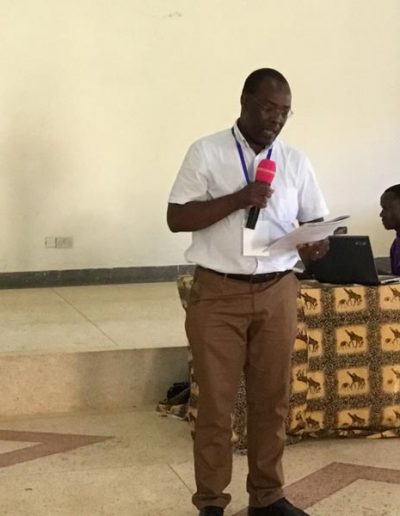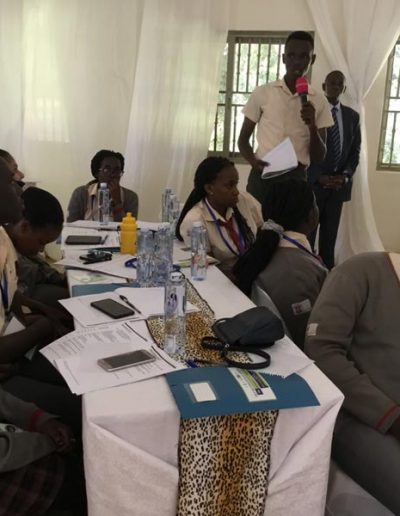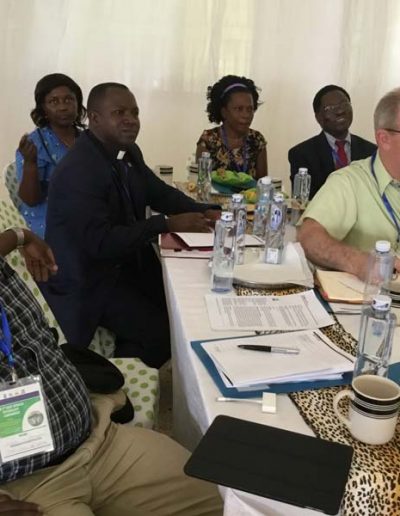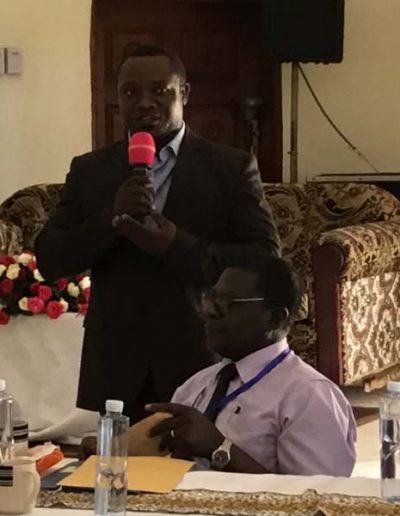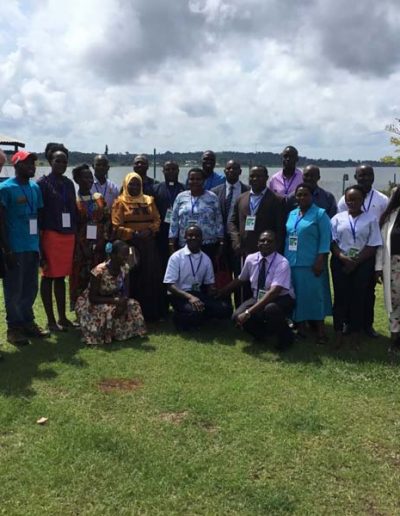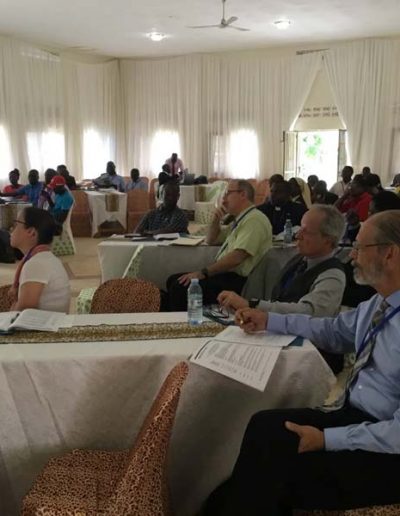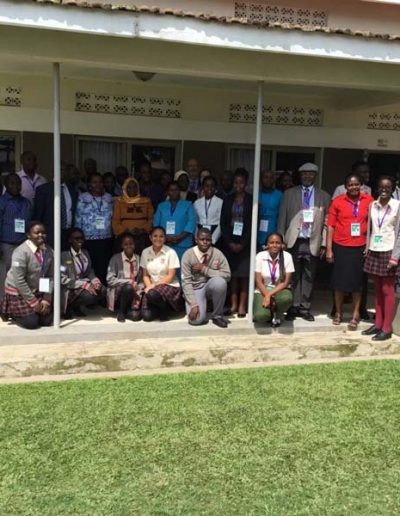The UBHA Conference has a rich history of promoting collaboration and advancing mental health initiatives. It all began with the inaugural conference held in January 2012 in Uganda, which initially focused on the systems of mental health service delivery in the country.
In 2022, we celebrated a significant milestone as we marked the 10th anniversary of the inaugural conference. This special occasion marked a decade of leadership in creating, coordinating, and delivering consistent and diverse activities to address mental health challenges.
Since its inception in 2012, UBHA and its expanding consortium have formed a strong alliance, leading to the realization of subsequent conferences. The second UBHA Conference took place in Uganda in 2014, exploring the profound impact of alcohol and drug abuse within the country. Throughout this journey, the University of Kisubi, formerly known as Kisubi Uganda Martyrs University, has played a pivotal role as a leading academic institution collaborating with UBHA.
The subsequent conferences in 2016 and 2017 yielded remarkable outcomes. It was during the 2017 conference that a transformative shift occurred, driven by the invaluable insights and concerns raised by our diverse participants. We recognized that the mental health issues addressed in Uganda were deeply intertwined with the challenges faced by communities across East African countries, including Kenya, Tanzania, Rwanda, Burundi, Eastern Congo, Somalia, Somaliland, and Ethiopia.
As a result, the 2017 conference marked a pivotal moment in UBHA’s history as we expanded our vision and mission beyond Uganda’s borders.
From 2018 to 2021, with the approval of attendees and major stakeholders, the conference gradually and consistently broadened its scope to encompass Eastern, Central, and Western Africa, as well as the United States and other countries.
The conference history is a testament to our commitment to collaboration, integrated care, and the inclusion of diverse perspectives in mental health initiatives. As we move forward, we continue to build on our foundation and embrace the opportunity to foster lasting change across Africa and beyond.
2021
7th East African Psychology Conference
“Holistic Healing within Community: Partnerships, Bridging Homes, School and the Workplace around the Globe during COVID19”
Executive Summary
Introduction
We came together virtually to strengthen partnerships and understanding of holistic healing within communities. For countries where Pandemic restrictions permit, small groups of attendees met and practiced appropriate physical and social distancing, consistent with the local guidance of the Pandemic. This was our 7th East Africa International Psychology Conference, attesting to the emerging tradition of the efforts that were started in 2012. UBHA, along with Sebastian Family Psychology Practice in Milwaukee and their partners were pleased to hold this event, amidst difficult circumstances. The challenges posed by Covid-19 and its destructive nature, in personal, professional and community lives, are yet to be fully understood. This year’s conference was a testament to the resilience that the collective partners bring to the table as they have continued to serve amidst the challenging conditions. We are an interdisciplinary body that involves many professions and disciplines. Yet, we were motivated by the desire to serve humanity and draw from the energies of our talents, and the strong belief of standing together, with each other in moments of adversity, but also in moments of celebration and triumphs.
Action
The 7th East African Psychology conference was held virtually October 7-8, 2021 with 242 registrants from nine countries. The topics revolved around COVID-19 and mental health impacts, education, and next steps. Allowing participants to network and collaborate with one another through breakout room sessions.
Conference Evaluation
Participants’ 15 formal feedback was documented through a five question, “Work Together to post-conference online format utilizing SurveyMonkey. The anonymous Grow Together” survey results of 15 respondents demonstrated significant eagerness and passion for the conference. A majority stated “themes of the conference were impactful” and “obtained knowledge from a diversity of cultural inputs.”
Topics included health, wellbeing, trauma data collecting, technology use, and counseling. Sub-Themes from the conference included community mental health, peace and public health, social medica and digital platforms. Breakout session participants discussed challenges from year 2020 to 2021 during the pandemic and reported out.
Future Steps
We will continue to promote, nurture, and use the Collective Learning processes and practices to deliver improved health and well-being and to improve health and psychological services in caring for those impacted by mental illness and medical challenges. We will continue to encourage interdisciplinary sectors to work together to improve service delivery, advance training, education of new providers, and interdisciplinary continuum. It is important to keep connections and partnerships active to continue growth and ideas.
2020 – The significance of the 6th East African International Psychology Conference, affected by Covid-19 but turned into a successful delivery opportunity:
In spite of Covid-19 and the significant disruption has created upon all our lives, the UBHA Board, along with Sebastian Family Psychology practice, and now joined by additional partners decided on hosting a combined presence platform. This meant that in such countries and in compliance with the local Covid-19 precautions, a certain number of people were able to meet in person for a block of hours, predetermined over the course of two days, and then participated in a predetermined synchronized virtual presence.
This achievement was made possible by the capacity, goodwill, and readiness to cooperate among participating partners. Those partners now include the University of Wisconsin, Masters in Sustainable Peacebuilding program, now organized and governed under the University of Wisconsin School of Nursing. The MSP Program has been a contributing and participating entity and partner with UBHA and Sebastian Family Psychology Practice since the 2017 Conference.
Additionally, the ever-present and long-running relationship of Dr. Fred Coleman, Psychiatrist, in the Department of Psychiatry at the UW-Madison has been valuable and continues to do so. Through his connections, we were able to connect and bridge relationships with the UW-Madison Global Health Institute, under the auspices of Dr. Lori DePrete Brown. That relationship was also instrumental in securing the collaboration and involvement of the University of Wisconsin-Madison School of Nursing. These were also joining the previous longstanding relationship between SFPP and the Medical College of Wisconsin, under the Global Health Pathway, and the Department of Behavioral Health and Psychiatry.
Additionally, this growing relationship also did include the collaboration of the Hope Without Borders, a non-profit entity based in Milwaukee, Wisconsin, but with a long history of working in Kenya, Tanzania, India and other countries. But it joined forces in supporting and collaborating with UBHA and Sebastian Family Psychology practice at the Uganda Conference that took place in 2018 going forward to current.
The Hope Without Borders Kenya team together with its partner Sebastian Family Psychological Practice conducted its first mental health conference at Daystar University in Nairobi on October 5-6, 2020. The objective of the conference was to provide holistic healing among the participants present so that they can learn to heal their community. A total of 15 participants including previous substance abuse addicts, counselors, teachers, pastors, non-profit workers and youth leaders attended the conference. The guest trainers were Dr. Charity Waithima and Dr. Susan Changorok both of whom are clinical psychologists based in Nairobi. On the other hand, Peter Durito and Elijah Munovi who also are the board members of Hope Without Borders moderated the sessions and trained the participants, particularly on Trauma Healing.
The topic during the two-day training included: Meaning of Mental Health, Thoughts around Mental Health, Types of Mental Illnesses, Good versus bad mental health, Relationship between Health and Mental Health, Causes of Mental illness, Effects of Mental Health illnesses and Treatment of Mental Health. Other topics included Healing Trauma through community bonds with sub-topics such as the meaning of trauma, symptoms, practical examples of traumatic experiences, overcoming trauma, exercises of releasing trauma, developing personal resilience, practical and spiritual ways of overcoming trauma.
The participants enjoyed the sessions saying it was enlightening and transformative and that the training has transformed their lives. The participants requested a similar training to be conducted because it was such a therapeutic one and can further result to more healing. The attendees appreciated the Hope Without Borders and Sebastian Family Psychological Practice for conducting such a timely and yet important topic of mental health and trauma healing which they said has done a great difference in their lives.
OUTCOME
- Hope Without Borders and Daystar University have started a conversation of strengthening their relationship by doing a joint training on mental health and trauma healing in the near future
- The conference has created bonds among the participants to update each other on what they are doing with the teachings gotten.
CHALLENGES
- Offering mental health training within a short time is quite engaging.
- The organizers worked within a constrained budget.
- Due to changes of the venue during the last minute and lack of clear communication, it was not possible to get the students from Daystar University to attend the conference.
WAYFORWARD
- There is need to add more days when conducting such a training.
- These team should reach out to more community members out there
- These team should share with each other on success stories on social media platform as part of strengthening this program.
- The team should think about a retreat, fun moment and fellowship together.
- The team should also think to have outreach program in learning institutions and religious centers.
